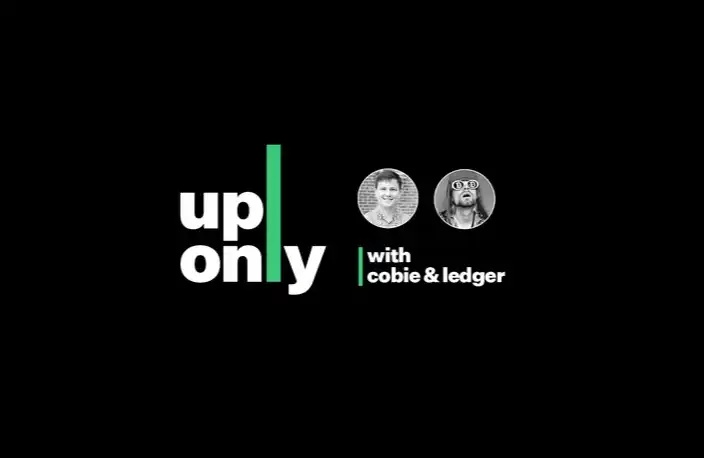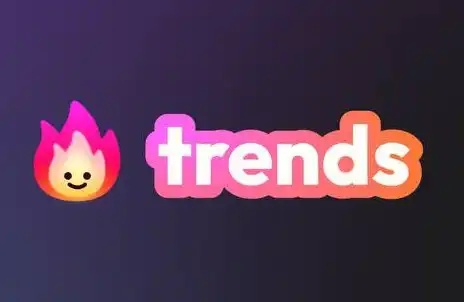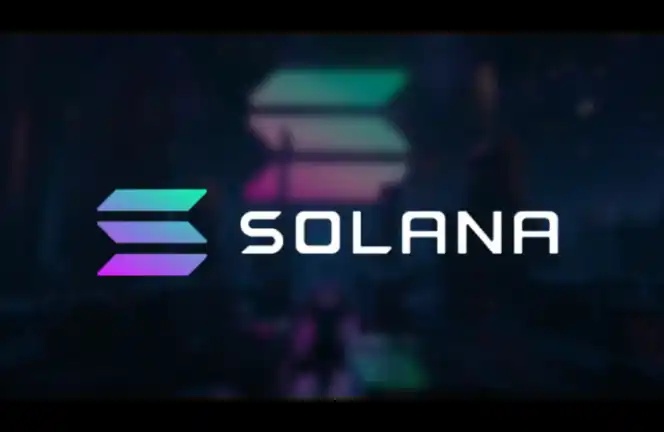Interview with Indie Developer Haole: Working at Big Tech During the Day, Building Dreams on the Chain at Night | Base Builder Talk
As the incubation headquarters for the next generation of on-chain applications, Base is not only Coinbase's ecosystem's technical playground, but also the preferred place for numerous developers to bring Web3 visions to life — low Gas fees, a comprehensive developer toolchain, and seamless integration with Ethereum L2, providing a fertile ground for the growth of crypto-native applications.
In this issue of the Base Builder Talk column, our guest is Haole, the developer of the Farcaster protocol client Recaster, who witnessed the rise and fall of Steemit, the first decentralized social platform, experienced the frenzy of DeFi Summer, but in the prophecy of AI devouring everything, has, in the guise of an independent developer, wandered outside the mainstream, dedicating himself to building the application he needs and believes in.
This dedication stems not only from his pure love for technology but is more deeply rooted in a philosophical speculation: should one accept fed data within the comfortable centralized "matrix" or choose the red pill leading to data sovereignty in the "real world"? In the current wave of AI dominance and the data fortresses built by Web2 giants, Haole's perseverance appears particularly precious.
Building a product is not only about solving specific problems but also about practicing the open-network ideal of "data belongs to users," injecting a tinge of resistance to this increasingly monopolized and algorithm-defined digital world, and bringing a touch of humanism. His story is that of a technological idealist's sobriety and persistence in the midst of the bustling crypto craze.
Below is the full interview:
BlockBeats: Please introduce yourself first. What was your entry point into crypto?
Haole: I am currently a coder in a small factory in North America. I entered the crypto circle around 2016. At that time, I needed to transfer money between China and America and found the traditional channels to be very cumbersome, with layers of audits and slow transfer speeds, realizing that the hard-earned money did not truly belong to me. Because of this, I began to learn about Bitcoin, read related books, and explore more and more projects in the crypto industry.
Using Bitcoin for arbitrage between China and the U.S. at that time had significant volatility risks. There was a project called BitShares, which can be considered the first-generation decentralized exchange platform, with RMB gateways, reducing volatility and making deposits and withdrawals very convenient.
Due to this project, I became a little fan of the BitShares founder BM (Daniel Larimer) and delved deep into BitShares, Steemit, and EOS.
Related Read: "From Steemit to friend.tech, Tracing the 7-Year Evolution History of SocialFi"
In the following few cycles, I have also been involved in ICOs, DeFi, NFTs, and Memes. However, it has always been a side hobby for me, and I have never joined any blockchain company. Mainly because I feel that this industry has a strong speculative element, with too few long-term projects, and companies die too quickly.
BlockBeats: Didn't become a scientist?
Haole: During the DeFi Summer, I could be considered half a scientist, played around with some scripts and such, but later found that the time cost was high, and holding Bitcoin was more profitable. After going through these cycles, I have come to realize that holding Bitcoin is the best strategy with the highest cost-effectiveness.
BlockBeats: Over the past year or two, from Recaster to Modbot, then to Newcaster, and also a payment product, which projects have you part-time worked on?
Haole: This year, I mainly worked on Recaster, a client based on the Farcaster protocol. Modbot and Newcaster are both tools in the Farcaster ecosystem, and I haven't invested too much time in them.
As for the payment product you mentioned, named Depal, it is a cryptocurrency-based payment platform that only I am currently using.
I developed this product to solve a KYC + fee problem. Platforms like Coinbase in the crypto industry are similar to traditional gateways, charging a percentage of the payment amount, but the actual transfer cost is only a few cents. With larger volumes, there is still a significant profit margin.
However, this product can only be considered a toy for now. To truly commercialize it, we need to address issues of trust and a profitable business model.
BlockBeats: In addition to addressing your own needs with these products, do you also aim to accumulate some project experience?
Haole: There are mainly two purposes: one is to address my own needs and create a product that satisfies me, and if it can help others, I would be even happier. The second is to learn a new technology stack to use in my full-time job, which is a way of giving back from Web3 to Web2 in my daily work.
BlockBeats: Using Web3 to give back to Web2 is quite interesting. You shared a passage before, summarizing that ordinary engineers entering the crypto industry can make money. Nowadays, everyone believes that AI is the way to go, no one is optimistic about the crypto industry, but prejudice actually implies opportunity. Looking back on this cycle, are you still satisfied with your initial assessment?

Haole: That tweet was actually posted in early 2024, just before the start of the bull market. At that time, everyone was chasing the AI trend, and the crypto industry was relatively quiet. The subsequent price surge from $30-40K indeed validated this point, showing that bias presents opportunities and profits. However, the recent market reversal indicates that AI is now the real hot commodity.
BlockBeats: Was that around the time when the Bitcoin ETF concept was starting to hype up?
Haole: Yes, exactly at that time. The more people view the crypto industry with colored glasses, the easier it is to identify value opportunities. When everyone is extremely enthusiastic, it's usually a sign that it's time to exit.
BlockBeats: So, looking back, how would you summarize the outcome?
Haole: This cycle, Bitcoin performed relatively well, but during the meme season, I experienced FOMO for a while, resulting in significant losses. This cycle once again proved one thing: ordinary people are only suitable for holding Bitcoin. Meme coins are all zero-cost worthless coins, and coins with no cost ultimately end up worthless.

Development Practice and Ecosystem Consideration of the Farcaster Client
BlockBeats: Why did you want to develop a Farcaster protocol client?
Haole: Bitcoin solved the issue of private property inviolability, but when it comes to data ownership, there isn't a truly good solution. Web2 social platforms profit from user data, although they allow you to download your data, you can't obtain all the platform's data, while the platform can use global data to establish data monopolies. In the AI era, platforms like Reddit, X, and Xiaohongshu are further restricting APIs to strengthen their data barriers.
A decentralized social media platform is an attempt to address this issue. Due to network effects, everyone knows it's very challenging, but since there are teams actually doing it, I am willing to participate and show my support.
Currently, Farcaster should be the most well-funded and technically practical team. They have been working on this for 3 - 4 years already. The founder enjoys interacting with the community, and the team has product iterations every week. They are one of the few teams in the crypto world with a long-term view, so I prefer to stick with doing something on Farcaster.

Recaster Custom Logo
BlockBeats: So you are in a traditional tech company, working under that set of values and rules, and then in your mind, you have a set of Open Network values where data belongs to everyone. Doesn't that create conflicting ideologies in your mind?
Haole: It's because I have seen too much of Web2, where everyone makes money by monopolizing information, that I feel there should be another way to disrupt or limit that. Just as Bitcoin can hedge against the overissuance of fiat currency, decentralized social media platforms also serve as a hedge against the information monopoly of these tech industry giants. Although progress is difficult, this is the right direction that is worth long-term commitment.
BlockBeats: Farcaster co-founder Varun once said in an interview that building applications and social networks is really, really difficult. It took a team of 20 people a year to build Warpcast. Hoping that other teams will fully commit to Farcaster's development from the beginning and put in 100% without users is unrealistic. How much have you invested in this development process? Time, effort, funding?
Related Reading: "Exclusive Interview with Farcaster Co-founder: Exploring the Future of Decentralized Social Networks"
Haole: They need to simultaneously develop the protocol layer, frontend, backend, and mobile end, so the cost is relatively high. Currently, the community has Neynar providing backend APIs. My development center is mainly on the mobile end. I have invested relatively little time, mainly using weekends and nights. Initially, I invested around 20-30 hours per week, and now it's less, approximately around 10 hours, and I have been doing this consistently for almost a year.
In terms of funding, I did not hire anyone, but rather developed independently. My main expense is Neynar's service fee, which is $250 per month. Along with server and other miscellaneous fees, the overall monthly cost is kept under $300, which is quite inexpensive.
BlockBeats: Supercast (another frontend application of the Farcaster protocol) has now been acquired, and founder Woj has also joined the Farcaster protocol team. How do you see the future of Recaster?
Haole: Currently, Farcaster has very few daily active users (DAU), and without funding, it is difficult to sustain a full-time team of more than 2 people. The acquisition of Supercast is considered a good outcome.
Recaster is quite unique. As mentioned earlier, its cost is exceptionally low, it does not require funding, and there is no commercialization demand. I am only responsible to myself and only aim to refine it into a product that satisfies me. As long as the Farcaster protocol survives, Recaster will continue to exist.
If one day Recaster becomes popular with many people, reaching 10,000 to 20,000 daily active users, I may consider full-time development.
BlockBeats: How do you interpret the behavior of the Farcaster protocol developing its own client?
Haole: I think it's great and I agree with it. Many people say the Farcaster team lacks the blockchain spirit and cannot develop a protocol. However, the fundamental issue at present does not lie within the protocol but rather in how to bring more people into the decentralized world. A pragmatic approach to decentralization is actually better in the early stages. Nevertheless, the Farcaster protocol is open enough, and for most of the core functionalities, I don't need official permission to build.
BlockBeats: How do you view the competitive relationship between Warpcast and Tako, as frontend applications of the Farcaster protocol?
Haole: It's hard to say there is competition. We are all small and are each seeking our product-market fit (PMF). Any team exploring decentralized social platforms should be supported and encouraged. We are in opposition to Web2 data monopolies, and I often communicate with the Tako team to help each other out.
BlockBeats: Throughout this process, you have always persistently worked on your own, which is truly remarkable.
Haole: Because my costs are low, and I am not currently considering profitability, I simply want to do something. If I were to build a team with a focus on making money, the pressure would increase, making it even harder to persevere.
BlockBeats: Have you ever thought that Recaster might fail? What would be the reason for not being able to continue?
Haole: As long as the Farcaster protocol continues to exist, this product will also exist because my costs are so low. My annual operational expenses are less than $5000, and the Farcaster team has provided $10,000 in grants. With me not spending money, it is enough to sustain it for another two years. If I really can't continue, it can only mean that the Farcaster protocol is dead.

The Evolution of Developers in the AI Wave
BlockBeats: You have expressed on social media the assistance AI has provided you. What is your biggest takeaway from this AI wave?
Haole: There will come a day when AI replaces programmers. Its development and execution capabilities now surpass those of most people. I can only say that I can better understand the constantly emerging new requirements in the real world more than it can?
BlockBeats: Can it be said that the role of a product manager will surpass that of an engineer responsible for execution and implementation in the future?
Haole: Perhaps in the future, AI can proactively identify needs and directly help people achieve them. Product managers and engineers responsible for execution will have the same fate.
However, there is one thing that AI can never replace—human relationships and interactions. The practical issue is that unless there is an in-person meeting, the online world cannot distinguish which accounts are real people.
BlockBeats: How do you view the combination of AI agents and Crypto? Some say that in the future, AI on social media will have its own identity, combined with a Crypto payment system, making it indistinguishable from a real person. At that point, the virtual world will be very entertaining, including some investors mentioning that the metaverse will once again become popular.
Haole: I still prefer the real world. Just like in "The Matrix," when faced with the choice between the red pill and the blue pill, I would choose the red pill. The path of reality is painful, imperfect, but real. You can see the value of life in people.
BlockBeats: Having this kind of attitude is still very helpful for product development.
Haole: Yes, especially after you have children. After years of hard study, coming out and being inferior to AI, it's a very sad thing. What is the meaning of a person's existence?
BlockBeats: So what is your answer to this question?
Haole: I haven't figured out the answer yet, I've just been thinking all along. It may be the weakness of human nature, greed, fear, anger, sorrow, that can bring different brilliance to this world...
BlockBeats: Looking forward to you sharing your answer online in the future.
The Survival Philosophy of Indie Developers
BlockBeats: You have been in the United States for 10 years. Do you think there are any differences in developer culture between the U.S. and China?
Haole: Many classmates are starting their own businesses. I often help them review their projects and provide feedback. Chinese engineers are indeed talented and very hardworking. Domestic teams are very efficient in remote collaboration using Feishu, much better than Slack. However, entrepreneurship in China is more realistic. Most people come together mainly to make money, and there are fewer idealistic individuals. Teams like the recently emerged Deepseek team are quite idealistic, but maybe after everyone has made enough money, they will pursue something else.
BlockBeats: After experiencing three cycles, what are the differences in the developer ecosystem for you?
Haole: In 2016 and 2017 when I first entered the industry, my faith was not firm enough, and I entered and exited the industry several times, so my impression of the developer ecosystem was not particularly deep. The DeFi Summer was the most exciting year, with many projects that were eye-catching. It turned out that blockchain could do this (although in the end, it didn't solve any practical problems). In this cycle, there is almost no excitement. The crypto industry has become an extension of the dominance of the U.S. dollar, becoming laborers for the dollar.
BlockBeats: So your belief in blockchain now is only a belief in Bitcoin.
Haole: Making data more open is also a belief.
BlockBeats: Are there any experiences from independent developers that can be shared with other developers in the blockchain industry?
Haole: Strictly speaking, I am not a truly independent developer. Although I develop independently in form, true independent development should refer to a full-time, commercially viable model. In my current situation, which is not profit-oriented, I am not a good example to follow. True independent development must find Product-Market Fit (PMF), and only when your product gains market acceptance and users are willing to pay, can you truly achieve independence.
From a realistic earnings perspective, wanting to make big money through independent development may not be the best choice. Though there are success stories, when multiplied by the probability, it is generally not as stable and reliable as joining a large company.
If you really want to do independent development, you must control costs, avoid blindly spending money, and understand that the importance of marketing outweighs writing code. Truly good products need time to refine, whether it's one year, two years, or even five years. The value accumulated over time is the best moat.
Welcome to join the official BlockBeats community:
Telegram Subscription Group: https://t.me/theblockbeats
Telegram Discussion Group: https://t.me/BlockBeats_App
Official Twitter Account: https://twitter.com/BlockBeatsAsia




 Forum
Forum Finance
Finance
 Specials
Specials
 On-chain Eco
On-chain Eco
 Entry
Entry
 Podcasts
Podcasts
 Activities
Activities
 OPRR
OPRR






